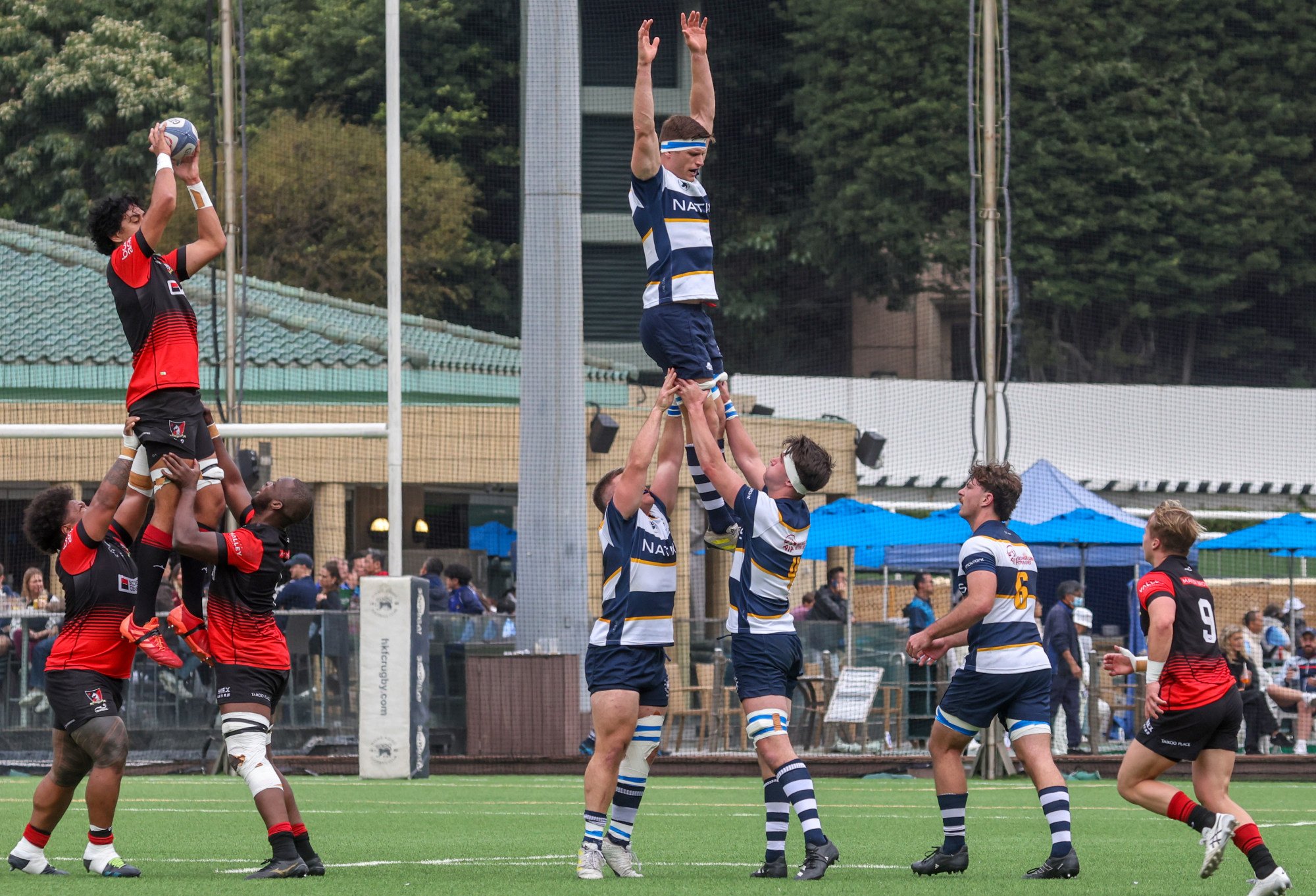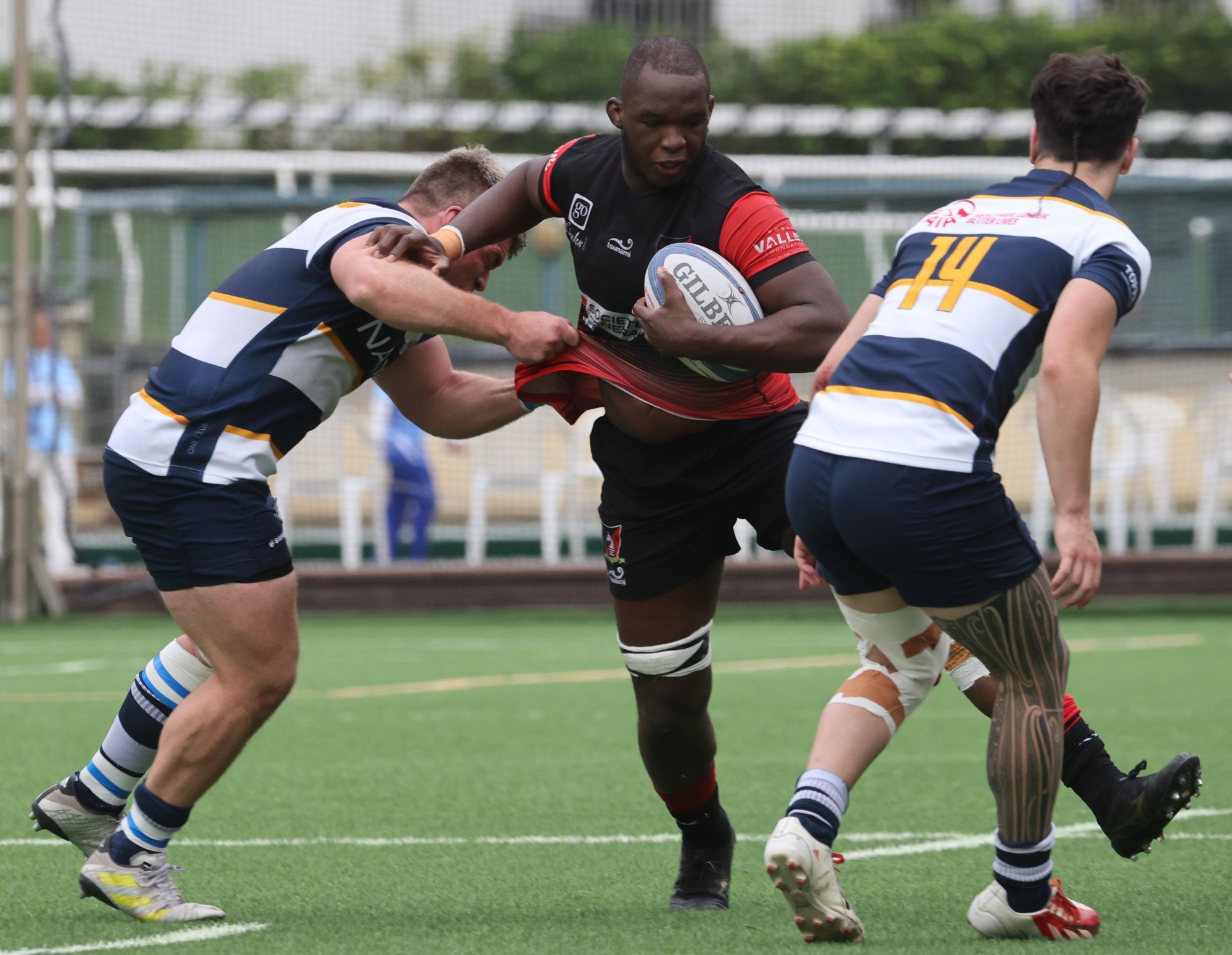
Hong Kong rugby Premiership goes to a decider, but the big questions are off pitch
- Valley upset Hong Kong Football Club to leave title destiny in balance before final day
- Leading figures hail intensity of club competition despite ‘financial and facilities limitations’, but acknowledge a big step up to international level
Leading figures in Hong Kong rugby launched a staunch defence of the city’s Premiership club competition after Valley beat Hong Kong Football Club to send the title race into next weekend’s final round.
HKFC could have finished Saturday’s fixtures with the silverware sewn up, but were stunned 23-20 and must visit second-placed Sandy Bay in a winner-takes-all clash to end a five-month campaign in which the six teams have played each of the others three times.
Valley trailed 13-3 after 34 minutes, but stunned the leaders after Elden Schoeman and Alistair Stacey both flew over in the corner for second-half tries.
Off the pitch, Logan Asplin, the HKFC head coach, insisted matches were of “a really high intensity, and exposing players to this level provides them with a good test”.

However, Asplin, who is also on the Hong Kong international team’s coaching staff after time as under-20 head coach, argues that growing the city’s meagre playing pool should be a priority.
“I would hate to know the number of registered players as a percentage of the population,” Asplin said. “If we have greater depth, our rugby will expand.”
The issue of equipping players for international competition is coming into sharp focus. A global calendar revamp from 2026 is likely to result in Hong Kong regularly encountering strong opposition. From 2027, the Rugby World Cup is expanding to 24 teams, upping the chances of Hong Kong facing the sport’s traditional superpowers.
Robbie McRobbie, CEO of Hong Kong China Rugby (HKCR), said the Premiership was aiming to thrive in the face of “financial and facilities limitations”.
“The Nan Fung Sewit Premiership is not just the shop window of our domestic game, but also the foundation of our [national] teams,” McRobbie said. “We introduced new governance structures this season, and are focused ... on making our Premiership product as strong as possible.”
McRobbie noted that Japan boasts Asia’s only “fully professional environment”, and acknowledged “it is still a big step up for our players from domestic to international level”.
Gus Leger, head coach of Valley, previously coached in New Zealand and represented Tonga at the 2003 World Cup.
“The intensity of Premiership games is quick, there is good physicality and some good athletes coming through,” Leger said. “We need to have high expectations of the players.”
Leger supports clubs recruiting from overseas to increase quality, and trusts “the wisdom at the front end of [HKCR] to keep a balance”.
HKCR seeks equilibrium via a points system. The fewest points (0) are attached to homegrown under-23 players, while the most (20) apply to those on working holiday visas who are 23 or older, and to players transferring between Premiership clubs in the close season. Starting 15s cannot exceed 180 points.
Stephen Dowse, the HKFC director of rugby, said developing young talent “is a cornerstone of the club”. “We have a number of players who graduated from our under-18s, or who came back via university,” he said.
HKFC operates six men’s and two women’s teams, and youth sides from age four to under-18. Dowse insists the Premiership has “stepped on this year”, as the recovery from Covid gathered pace.
Convincing people to watch an entertaining product remains a challenge. A few hundred enthusiastic devotees made plenty of noise on a brisk afternoon at HKFC, but there was room for plenty more.

“Clubs are working together to promote games, and we did a lot with Valley on social media,” Dowse said. “We need to lean on traditional rivalries.”
Asplin, who must prepare his part-time squad for a “spicy” decider, conceded routinely meeting familiar foes provided “coaching challenges”, and favours a step towards professionalism before Hong Kong tries to tackle physically destructive opposition in World Cups.
“[The physicality difference] can be dangerous,” he said. “That is the challenge of having part-time players. Their priority is work, rugby second. We want to change the balance. How do we do that? I don’t have an answer, but it’s a good question.”

